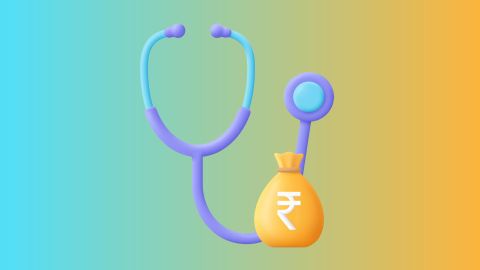Are you an MBBS graduate looking to advance your career? The medical field offers a wealth of opportunities, including a range of postgraduate options following an MBBS degree. These opportunities allow you to specialise in various areas of interest through advanced courses, enabling you to focus on your chosen field and enhance your expertise. PG courses after MBBS are the next best step towards boosting your skills and experience. In this post, we will take a look at different post-graduate courses you can pursue after MBBS and how they could benefit your career.
Benefits of pursuing a PG course after MBBS
Here are some of the advantages of pursuing a post-graduate course after MBBS:
- Increased earning potential: One of the main reasons for pursuing a post-graduate course is to increase your earning potential. Specialised skills and expertise bring with them the promise of better salaries and job opportunities.
- Better knowledge: Post-graduate courses provide deeper and more extensive knowledge in a specific medical field. You can expect to acquire new skills that will help you get ahead in your practice.
- Opportunities for research: A post-graduate course provides you the opportunity to dive deep into research and apply the same in your clinical practice.
- More specialised expertise: By pursuing a post-graduate degree, you get exposure to various new and innovative therapies that are not always covered in MBBS curriculum. This will help you stand out in your field.
List of post-graduate courses after MBBS
Are you considering pursuing a post-graduate course after MBBS? Here are some courses that you can choose from:
1. Doctor of Medicine:
Doctor of Medicine (MD) is one of the most popular post-graduate courses in the medical field. This course focuses on research and clinical practice, providing an in-depth understanding of the human body, making diagnoses and treatments.
MD specialisations
Here is a list of some common MD specialisations:
Internal Medicine |
Pediatrics |
Obstetrics and Gynecology |
Surgery |
Psychiatry |
Radiology |
Anesthesiology |
Dermatology |
Orthopedic |
Pathology |
Ophthalmology |
Neurology |
2. Master of Surgery:
Master of Surgery (MS) is another popular post-graduate course that focuses on theoretical and practical aspects of surgery. This course helps you acquire the necessary skills to perform surgeries, diagnose and treat related conditions.
MS specialisations
Here are some common specialisations for the Master of Science (MS) degree:
General surgery |
Pediatric surgery |
Orthopedic surgery |
Gynecological surgery |
Neurosurgery |
Vascular surgery |
Cardiothoracic surgery |
Colorectal surgery |
Plastic surgery |
Urology |
ENT (Ear, Nose, and Throat) surgery |
Ophthalmic surgery |
3. Diploma in clinical pathology:
Diploma in clinical pathology is a course for those interested in specialising in laboratory medicine. It trains you in diagnosing and interpreting laboratory data, among other things.
Clinical pathology specialisations
Here are some clinical pathology specialisations:
- Hematology
- Clinical Microbiology
- Clinical Chemistry
- Transfusion Medicine
- Immunology
- Molecular Pathology
- Cytogenetics
- Clinical Immunohematology
- Clinical Biochemistry
- Clinical Cytogenetics
4. Diploma in anaesthesia:
Diploma in anaesthesia is a course that prepares you to administer anaesthesia and sedation during surgical procedures. It is ideal for those who want to work as an anaesthetist.
Anaesthesia specialisation
Here are some specialisations in anesthesia:
- General anesthesia
- Cardiac anesthesia
- Pediatric anesthesia
- Obstetric anesthesia
- Neuroanesthesia
- Regional anesthesia
- Pain management
- Critical care medicine
5. Post graduate diploma in radiology:
If you are interested in diagnostic radiology, then post graduate diploma in radiology is the right course for you. It is a programme that provides comprehensive training in various imaging modalities. Continuous learning is important in this field, making continuing medical education vital.
Radiology specialisations
- Diagnostic radiology
- Interventional radiology
- Neuroradiology
- Musculoskeletal radiology
- Pediatric radiology
- Cardiovascular radiology
- Abdominal radiology
- Breast imaging
Career scope:
A postgraduate medical course opens up a myriad of career opportunities, providing specialised knowledge and skills essential for advancing in the medical field. Here's a comprehensive look at career prospects:
- Clinical practice: Postgraduates can pursue careers as specialists in various medical disciplines, offering advanced diagnostic and treatment services to patients.
- Academic medicine: Opportunities exist for teaching and research positions in medical schools, universities, and research institutions, contributing to the education and training of future medical professionals.
- Hospital administration: Postgraduates can explore roles in hospital management, healthcare administration, and leadership positions, overseeing hospital operations and ensuring quality patient care.
- Public health: Careers in public health offer opportunities to work in government agencies, NGOs, and international organizations, focusing on disease prevention, health promotion, and policy development.
- Consultancy and private practice: Postgraduates can establish private practices, consultancies, or join group practices, providing specialised healthcare services to patients in their chosen field.
- Global health initiatives: Opportunities exist to work on global health projects, humanitarian missions, and medical relief efforts, addressing healthcare challenges in underserved communities worldwide.
With a postgraduate medical qualification, individuals can embark on diverse career paths, making significant contributions to healthcare delivery, research, education, and public health initiatives. Alternatively, if you are interested in the intersection of healthcare and information management, consider a career as a Medical Coder, which plays a vital role in medical billing and data management.
Duration of PG medical courses
Postgraduate medical courses, structured under the NEET PG framework, vary in duration depending on the specialty and the educational system of each country. Understanding these durations is essential for aspiring medical professionals. Here’s a concise breakdown:
1. MD (Doctor of Medicine) and MS (Master of Surgery):
- Duration: 3 years
- Provides comprehensive knowledge and practical skills in chosen medical or surgical specialties.
2. DM (Doctorate in Medicine) and MCh (Master of Chirurgiae):
- Duration: 3 years
- Focuses on advanced clinical and research aspects for those seeking high-level expertise.
3. Diploma Courses:
- Duration: 1 to 2 years
- Offers focused training in specific medical fields for a more streamlined approach.
4. PhD in Medical Sciences:
- Duration: 3 to 5 years
- Involves extensive research-oriented study for those aiming to make significant contributions to medical research.
5. PG Diploma Courses:
- Duration: 1 to 2 years
- Provides specialised knowledge within a shorter timeframe, ideal for quick career advancements.
This overview outlines the diverse timelines associated with postgraduate medical courses, helping prospective students tailor their educational journey to align with their career goals in the evolving field of medicine.
Pursuing post-graduate courses abroad
There are several post-graduate courses available abroad if you are willing to pursue further studies overseas. These courses are beneficial for those who want to gain exposure to innovative medicine in other cultures. Countries like the USA, Europe, and Australia offer world-class education, providing extensive exposure in various sub-fields of medicine.
Pursuing a post-graduate course after MBBS is the first step in your journey towards becoming an expert in your field. Whether you choose to specialise in surgery or anaesthesia, the critical thing is to choose an area that interests you and provides a good career path. Do not hesitate – the sooner you start, the sooner you will acquire the necessary skills and expertise to stand out in your field.
How to choose your relevant PG course after MBBS
Choosing the right PG course after completing MBBS is a key decision that influences your career path and professional satisfaction. To make an informed choice, consider the following aspects:
- Identify your interests and strengths
Start by evaluating which areas of medicine you are most passionate about. Whether you prefer direct patient care, surgery, or diagnostics, aligning your strengths and interests with the course is crucial for long-term success. - Analyse future career opportunities
Look at the demand for specialists in different fields, the earning potential, and the evolving needs in healthcare. Fields like radiology, cardiology, or emergency medicine might offer better career prospects depending on market trends and patient needs. - Evaluate course structure and learning style
Choose a program that fits your learning preferences, whether it emphasises practical experience, research, or clinical exposure. A well-structured course will ensure you gain the necessary expertise in your chosen specialty. - Consider work-life balance
Assess how the chosen specialty will affect your lifestyle. Some fields require long hours and more demanding schedules, while others might offer a more balanced workload. - Mentorship and guidance
Reach out to mentors or experienced professionals in the field for advice. They can provide valuable insights into career growth, specialisation trends, and the daily realities of specific fields.
By combining your interests, career goals, and practical considerations, you can choose the best PG course for a fulfilling medical career.
Conclusion
Pursuing a postgraduate course after MBBS is a vital step in deepening your expertise and shaping your future in medicine. With numerous specialisations to choose from, selecting the right path depends on your interests, long-term goals, and the changing needs of the healthcare system. Whether you aim to excel in clinical practice, medical research, or public health, the right PG course can open doors to impactful opportunities across the medical field.
To ease this academic transition, a professional loan or Doctor Loan can support your financial needs, so you can concentrate on your career without worrying about upfront costs.














 Personal Loan
Personal Loan Check Eligibility
Check Eligibility Salaried Personal Loan
Salaried Personal Loan EMI Calculator
EMI Calculator Account Aggregator
Account Aggregator
 Deals starting @99
Deals starting @99 Min. 50% off
Min. 50% off
 Bajaj Pay
Bajaj Pay Wallet to Bank
Wallet to Bank
 Smartphones
Smartphones Led TVs
Led TVs Air Conditioner
Air Conditioner Refrigerators
Refrigerators Air Coolers
Air Coolers Laptops
Laptops Washing Machines
Washing Machines Savings Offer
Savings Offer Easy EMI Loan
Easy EMI Loan
 Loan Against Shares
Loan Against Shares Loan Against Mutual Funds
Loan Against Mutual Funds Loan Against Insurance Policy
Loan Against Insurance Policy ESOP Financing
ESOP Financing Easy EMI Loan
Easy EMI Loan Two-wheeler Loan
Two-wheeler Loan Loan for Lawyer
Loan for Lawyer Industrial Equipment Finance
Industrial Equipment Finance Industrial Equipment Balance Transfer
Industrial Equipment Balance Transfer Industrial Equipment Refinance
Industrial Equipment Refinance Personal Loan Branch Locator
Personal Loan Branch Locator Used Tractor Loan
Used Tractor Loan Loan Against Tractor
Loan Against Tractor Tractor Loan Balance Transfer
Tractor Loan Balance Transfer Flexi
Flexi View All
View All
 Two-wheeler Loan
Two-wheeler Loan Bike
Bike Commuter Bike
Commuter Bike Sports Bike
Sports Bike Tourer Bike
Tourer Bike Cruiser Bike
Cruiser Bike Adventure Bike
Adventure Bike Scooter
Scooter Electric Vehicle
Electric Vehicle Best Sellers
Best Sellers Popular Brands
Popular Brands

 Open Demat Account
Open Demat Account Trading Account
Trading Account Margin Trading Facility
Margin Trading Facility Share Market
Share Market Invest in IPO
Invest in IPO All stocks
All stocks Top gainers
Top gainers Top losers
Top losers 52 week high
52 week high 52 week low
52 week low Loan against shares
Loan against shares
 Home Loan
Home Loan Transfer your existing Home loan
Transfer your existing Home loan Loan against Property
Loan against Property Home Loan for Salaried
Home Loan for Salaried Home loan for self employed
Home loan for self employed Loan Against Property Balance Transfer
Loan Against Property Balance Transfer Home Loan EMI Calculator
Home Loan EMI Calculator Home Loan eligibility calculator
Home Loan eligibility calculator Home Loan balance transfer
Home Loan balance transfer View All
View All
 Term Life Insurance
Term Life Insurance ULIP Plan
ULIP Plan Savings Plan
Savings Plan Family Insurance
Family Insurance Senior Citizen Health Insurance
Senior Citizen Health Insurance Critical Illness Insurance
Critical Illness Insurance Child Health Insurance
Child Health Insurance Pregnancy and Maternity Health Insurance
Pregnancy and Maternity Health Insurance Individual Health Insurance
Individual Health Insurance Low Income Health Insurance
Low Income Health Insurance Student Health Insurance
Student Health Insurance Group Health Insurance
Group Health Insurance Retirement Plans
Retirement Plans Child Plans
Child Plans Investment Plans
Investment Plans
 Business Loan
Business Loan Secured Business Loan
Secured Business Loan Loan against property
Loan against property Loans against property balance transfer
Loans against property balance transfer Loan against shares
Loan against shares Home Loan
Home Loan Loans against mutual funds
Loans against mutual funds Loan against bonds
Loan against bonds Loan against insurance policy
Loan against insurance policy
 Apply for Gold Loan
Apply for Gold Loan Transfer your Gold Loan with Us
Transfer your Gold Loan with Us Gold Loan Branch Locator
Gold Loan Branch Locator
 ULIP Plan
ULIP Plan Savings Plan
Savings Plan Retirement Plans
Retirement Plans Child Plans
Child Plans Free Demat Account
Free Demat Account Invest in Stocks
Invest in Stocks Invest in IPO
Invest in IPO Margin Trading Facility
Margin Trading Facility Fixed Deposit Branch Locator
Fixed Deposit Branch Locator
 New Car Loan
New Car Loan Used Car Loan
Used Car Loan Loan Against Car
Loan Against Car Car Loan Balance Transfer and Top-up
Car Loan Balance Transfer and Top-up My Garage
My Garage
 Get Bajaj Prime
Get Bajaj Prime
 Mobiles on EMI
Mobiles on EMI Electronics on EMI Offer
Electronics on EMI Offer  Iphone on EMI
Iphone on EMI LED TV on EMI
LED TV on EMI Refrigerator on EMI
Refrigerator on EMI Laptop on EMI
Laptop on EMI Kitchen appliances on EMI
Kitchen appliances on EMI Washing machines
Washing machines
 Personal Loan EMI Calculator
Personal Loan EMI Calculator Personal Loan Eligibility Calculator
Personal Loan Eligibility Calculator Home Loan EMI Calculator
Home Loan EMI Calculator Home Loan Eligibility Calculator
Home Loan Eligibility Calculator Good & Service Tax (GST) Calculator
Good & Service Tax (GST) Calculator Flexi Day Wise Interest Calculator
Flexi Day Wise Interest Calculator Flexi Transaction Calculator
Flexi Transaction Calculator Secured Business Loan Eligibility Calculator
Secured Business Loan Eligibility Calculator Fixed Deposits Interest Calculator
Fixed Deposits Interest Calculator Two wheeler Loan EMI Calculator
Two wheeler Loan EMI Calculator New Car Loan EMI Calculator
New Car Loan EMI Calculator Used Car Loan EMI Calculator
Used Car Loan EMI Calculator All Calculator
All Calculator Used Tractor Loan EMI Calculator
Used Tractor Loan EMI Calculator
 Hot Deals
Hot Deals Clearance Sale
Clearance Sale Kitchen Appliances
Kitchen Appliances Tyres
Tyres Camera & Accessories
Camera & Accessories Mattresses
Mattresses Furniture
Furniture Watches
Watches Music & Audio
Music & Audio Cycles
Cycles Mixer & Grinder
Mixer & Grinder Luggage & Travel
Luggage & Travel Fitness Equipment
Fitness Equipment Fans
Fans
 Personal Loan for Doctors
Personal Loan for Doctors Business loan for Doctors
Business loan for Doctors Home Loan
Home Loan Secured Business Loan
Secured Business Loan Loan against property
Loan against property Secured Business Loan Balance Transfer
Secured Business Loan Balance Transfer Loan against share
Loan against share Gold Loan
Gold Loan Medical Equipment Finance
Medical Equipment Finance
 Smart Hub
Smart Hub ITR Service
ITR Service Digi Sarkar
Digi Sarkar
 Savings Offer
Savings Offer Easy EMI
Easy EMI Offer World
Offer World 1 EMI OFF
1 EMI OFF New Launches
New Launches Zero Down Payment
Zero Down Payment Clearance Sale
Clearance Sale Bajaj Mall Sale
Bajaj Mall Sale
 Mobiles under ₹20,000
Mobiles under ₹20,000 Mobiles under ₹25,000
Mobiles under ₹25,000 Mobiles under ₹30,000
Mobiles under ₹30,000 Mobiles under ₹35,000
Mobiles under ₹35,000 Mobiles under ₹40,000
Mobiles under ₹40,000 Mobiles under ₹50,000
Mobiles under ₹50,000
 Articles
Articles
 Overdue Payments
Overdue Payments Other Payments
Other Payments
 Document Center
Document Center Bank details & Documents
Bank details & Documents Tax Invoice Certificate
Tax Invoice Certificate
 Do Not Call Service
Do Not Call Service
 Hamara Mall Orders
Hamara Mall Orders Your Orders
Your Orders

 Fixed Deposit (IFA) Partner
Fixed Deposit (IFA) Partner Loan (DSA) Partner
Loan (DSA) Partner Debt Management Partner
Debt Management Partner EMI Network Partner
EMI Network Partner Became a Merchant
Became a Merchant Partner Sign-in
Partner Sign-in
 Trade directly with your Demat A/c
Trade directly with your Demat A/c ITR
ITR My Garage
My Garage
 Live Videos - Beta
Live Videos - Beta
 Savings Offer
Savings Offer Smartphones
Smartphones LED TVs
LED TVs Air Conditioners
Air Conditioners Refrigerators
Refrigerators Air Coolers
Air Coolers Laptops
Laptops Washing Machines
Washing Machines Water Purifiers
Water Purifiers Tablets
Tablets Kitchen Appliances
Kitchen Appliances Mattresses
Mattresses Furniture
Furniture Music and Audio
Music and Audio Cameras & Accessories
Cameras & Accessories Cycle
Cycle Watches
Watches Tyres
Tyres Luggage & Travel
Luggage & Travel Fitness Equipment
Fitness Equipment Tractor
Tractor Easy EMI Loan
Easy EMI Loan
 vivo Mobiles
vivo Mobiles OPPO Mobiles
OPPO Mobiles Xiaomi Mobiles
Xiaomi Mobiles Sony LED TVs
Sony LED TVs Samsung LED TVs
Samsung LED TVs LG LED TVs
LG LED TVs Haier LED TVs
Haier LED TVs Godrej Refrigerators
Godrej Refrigerators Voltas Washing Machines
Voltas Washing Machines
 New Tractor Loan
New Tractor Loan Used Tractor Loan
Used Tractor Loan Loan Against Tractor
Loan Against Tractor Tractor Loan Balance Transfer
Tractor Loan Balance Transfer
 New Car Loan
New Car Loan New Cars Under ₹10 Lakh
New Cars Under ₹10 Lakh New Cars – ₹10–₹15 Lakh
New Cars – ₹10–₹15 Lakh New Cars – ₹15–₹20 Lakh
New Cars – ₹15–₹20 Lakh New Cars – ₹20–₹25 Lakh
New Cars – ₹20–₹25 Lakh New Car Brands
New Car Brands Petrol – New Cars
Petrol – New Cars Diesel – New Cars
Diesel – New Cars Electric – New Cars
Electric – New Cars CNG – New Cars
CNG – New Cars Hybrid – New Cars
Hybrid – New Cars























